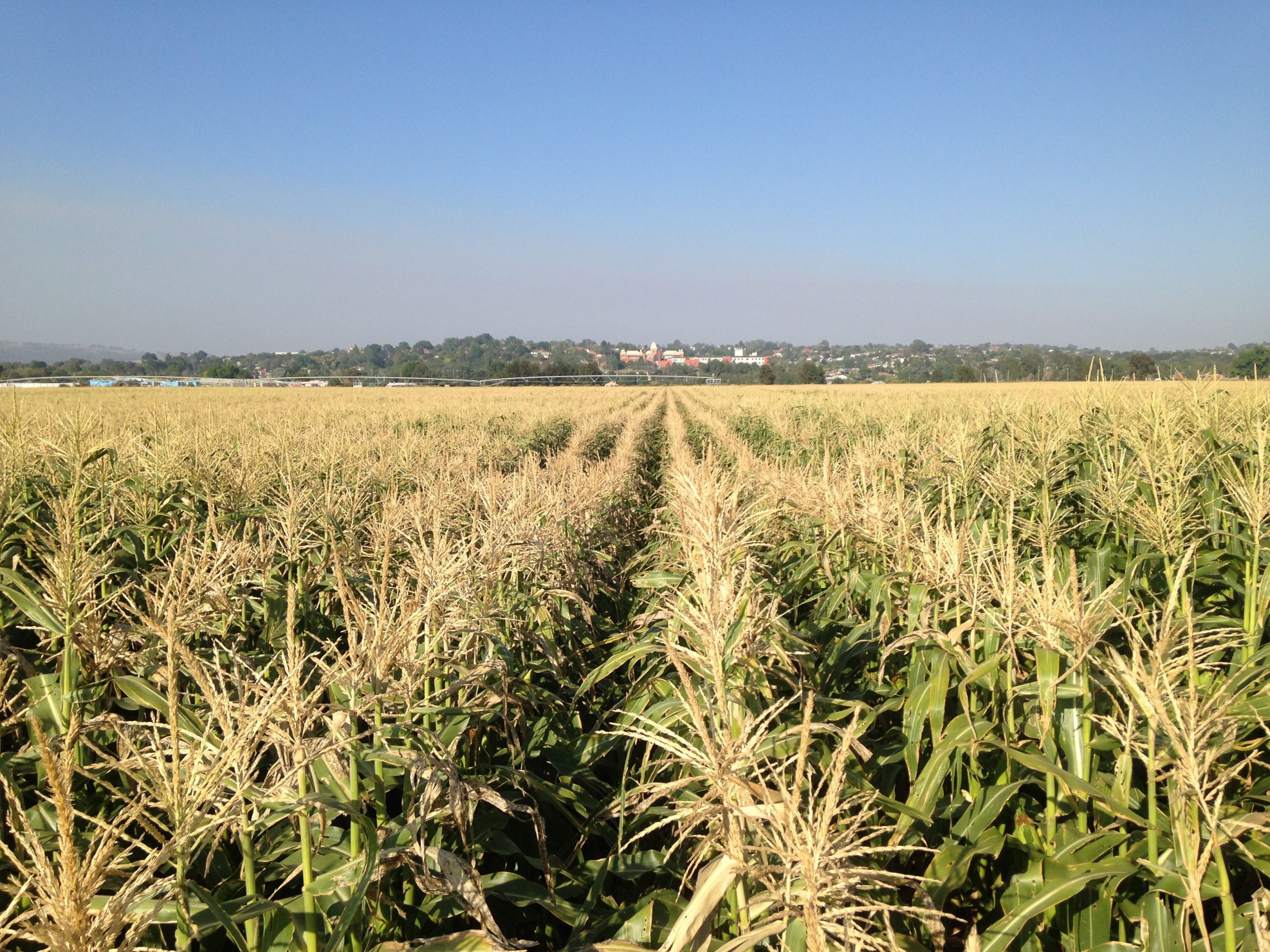Adoption of soil moisture monitoring in sweet corn
VegNET – New South Wales, in partnership with Simplot, engaged with growers to hold a Farm Technology Field Day in Bathurst and Geurie in September 2018. The focus of the day was soil moisture monitoring in sweet corn crops and its benefits for vegetable growers. The VegNET – NSW team reports on the outcomes and previous research into this irrigation technology.
Through the adoption of soil moisture probes, growers can set clear irrigation targets based on soil moisture and monitor remotely to see if they are being met. Alerts can be set for low line irrigation system pressure. Irrigation schedules can be adjusted easily as well as checking run times – and these can be done remotely.
This technology monitors irrigation performance and prevents needless irrigation on saturated soils. It also takes into consideration any variation of soil type within the crop and ensures sufficient deep watering at critical crop intervals. Growers can see how much water makes it to the root zone and it saves pumping and fertiliser costs as well as preventing unnecessary over-irrigation.
After the recent drought across eastern Australia, water shortages and water use efficiencies are even more important. Profit margins per ML of irrigation water are a big driver for large scale sweet corn cropping.
Grower outcomes
Brendan Booth is a sweet corn grower using centre pivot irrigation from Geurie in Central West New South Wales. He was introduced to moisture monitoring through Review of current irrigation technologies (VG14048), a strategic levy investment under the Hort Innovation Vegetable Fund.
Brendan urges other growers to learn to ‘push out water further’, with a focus on increasing returns per ML of water used.
After using the Wildeye Soil Moisture Monitoring probes, Brendan says he now uses more water but grows more crop, so the margin per hectare is greater.
Scott Stevenson from Ponto, near Dubbo, is a sweet corn, adzuki bean and wheat farmer who has also trialled Wildeye Soil Moisture Monitoring probes. Even though Scott was watering more because of the moisture probes, he was watering more accurately – and the result was a better sweet corn crop.
Another sweet corn grower near Dubbo is Mark Carter, who has used soil moisture probes on all of his crops.
“Testing them out gives you confidence with water use and is a good back up tool,” Mark said.
Matthew Plunkett is the Senior Land Services Officer Irrigation with Local Land Services, and he said soil moisture probes are another tool to aid decision-making.
“They allow growers to drive returns per ML of water further. This is particularly important when water availability is an issue as we have seen in recent years,” Matthew said.
“Based on discussions with growers and feedback from Simplot, it was clear that many growers were not applying enough water early in the crop cycle. Failing to do so has a significant impact on yields, and this is where soil moisture monitoring tools pay dividends in addition to deciding when to restart irrigation after rainfall events.”
Previous research
Many irrigation systems that have been assessed in the past, particularly centre pivot and lateral move systems, have not been applying water evenly and/or at the correct pressure. This leads to under, and over-watering in some areas.
Growers can undertake simple checks on their systems. These include ensuring the nozzle size matches the supplier specifications, pressure gauges are fitted to machines, and putting out some buckets in the path of the irrigators to measure sprinkler output.
Work undertaken by Applied Horticultural Research at Cowra has shown that using satellite imagery in conjunction with soil moisture monitoring in sweet corn can improve crop yields and quality. This study can be found on the Soil Wealth website.
The bottom line
The critical take home messages from this study is ensuring that growers use these tools to apply enough water early in the crop cycle, particularly from crop growth stages 3-5 (days 42-66 – 12 leaves stage to tasselling/silking).
Crop water use can increase up to 400 per cent during this time and if the irrigation system cannot keep up with crop water use, significant reductions in yields will occur.
Monitoring soil moisture improves crop productivity per ML and allows for critical crop periods to be monitored. Water stressing plants at critical times, such as flowering, reduces yields and crop quality.
Find out more
Please contact NSW Regional Development Officer Sylvia Jelinek from Greater Sydney Local Land Services on 0427 086 724 or sylvia.jelinek@lls.nsw.gov.au, or Matthew Plunkett on 0428 978 390 or matthew.plunkett@lls.nsw.gov.au.
VegNET – New South Wales is a strategic levy investment under the Hort Innovation Vegetable Fund.
This project has been funded by Hort Innovation using the vegetable research and development levy and contributions from the Australian Government.
Project Number: VG19011
This article first appeared in Vegetables Australia – Summer 2020/21. To read the full publication, please click here.

